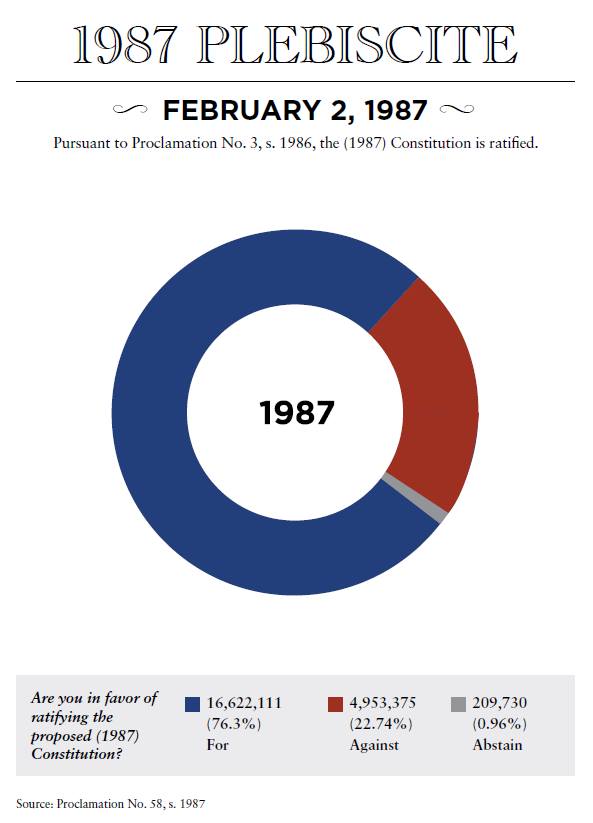The word “Constitution” is being bandied about these past few days, no thanks to the Senate Electoral Tribunal’s decision regarding Grace Poe’s citizenship and Rodrigo Duterte’s reaction to the said decision.
But what is a Constitution?
Duhaime.org defines constitution as:
The basic, fundamental law of a state which sets out how that state will be organized and the powers and authorities of government between different political units and citizens.
It is basically an agreement between citizens of a state on how the government is organized, its powers, and how it relates to its citizens. Basically all actions of the government – executive actions, legislations passed, decisions promulgated by the courts – are governed by the Constitution.
The same Constitution (in our case, the 1986 Constitution, a written document; not all constitutions are in written form, the United Kingdom, for example, doesn’t have a written constitution) also includes a list of guaranteed rights of citizens called the Bill of Rights. Basically, the government cannot act, cannot legislate, and cannot make decisions that will violate any of the rights listed in the Bill of Rights.
So basically, Duterte is correct:
Photo from ABS-CBNnews.com FB page
But. Here’s the problem. The people had ratified the Constitution and its entire content, meaning we agreed on everything that is stated in the Constitution. You cannot take a part of it and disregard the others that you don’t like or does not conform with your beliefs. It just doesn’t work that way.
You take it as it is, or you have it amended through the means stated in Article 17. (I wish you luck; there has never been a successful amendment since the Constitution was ratified.)
So, the Bill of Rights. It is Article 3, with 22 sections. The first one is the most paramount:
Section 1. No person shall be deprived of life, liberty, or property without due process of law, nor shall any person be denied the equal protection of the laws.
It is a very powerful provision: no one, not even the government can kill you, can detain you, or take away your property without you undergoing due process. Meaning, before the government can do anything against you, it “must follow fair procedures.” There will be investigation, you will be informed of the case against you, you can defend yourself before a court of law, and the court will decide based on evidence.
That’s how it is supposed to work. We have assented to the Constitution, and we promised to abide by it.
So: there simply has no place for extra-judicial killings in this country under the Constitution. If a candidate makes a bold claim that there is no messing up with the Constitution yet advocates killing suspects without due process, that candidate is paying lip service only. If a candidate admits links to a death squad, he is actually violating the Constitution.
The Constitution is the fundamental law of the land. There is no middle ground in compliance. There is no compromising the Constitution.
(Originally posted as a Facebook Note.)

